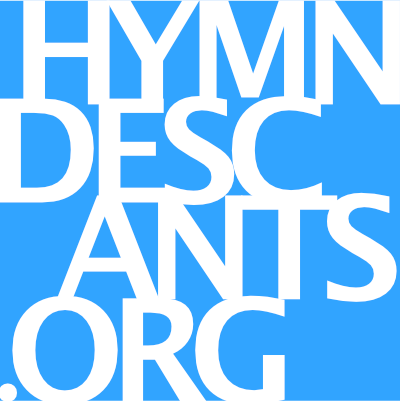Descant to the hymn tune ERHALT UNS, HERR. Free score with harmonized descant. Free score.
1 hymnal
The glory of these forty days
we celebrate with songs of praise;
for Christ, through whom all things were made,
himself has fasted and has prayed.
5. descant
O Father, Son, and Spirit blest,
to thee be every prayer addressed,
who art in threefold Name adored,
from age to age, the only Lord.
The text, "The glory of these forty days," is from a 6th C. Latin hymn, referring to the temptation of Christ in the wilderness; the glory not being, of course, the temptation itself, but the victory over that temptation. The period of forty days - and this hymn - have for centuries since been embedded into the observance of Lent. Note that the very second phrase of the hymn is "we celebrate with songs of praise," signalling that Lent is not a period of - nor does introspective self-denial require - mourning. The original office hymn Clarum decus jejunii ("the glory of fasting") is traditionally attributed to St. Gregory the Great, perhaps on the basis of his role as the seminal compiler of Latin hymns, the eponymous father of Gregorian chant. There is no evidence, however, that he actually authored this hymn. The hymn tune ERHALT UNS, HERR is the successor to a chant tune associated with the text Veni Redemptor gentium. The first arrangement of this text and tune has been attributed to Martin Luther, first in a 1541 broadsheet in low German, then a high German version appearing two years later in Klug's Geistliche Lieder (1543). The hymnal version was harmonized by Johann Sebastian Bach, and the tune forms the basis for Cantata 126, Erhalt' uns, Herr, bei deinem Wort ("Keep us, Lord, according to thy Word").
The glory of these forty days
O Father, Son, and Spirit blest,
to thee be every prayer addressed,
who art in threefold Name adored,
from age to age the only Lord.
–Latin 6th C., tr. Maurice F. Bell (1862-1947) alt.

